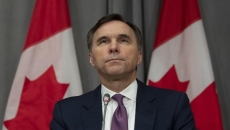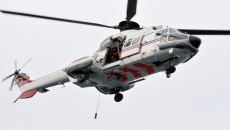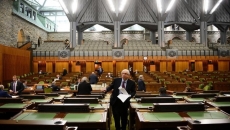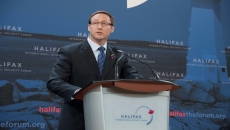A senior police officer from the United Kingdom who specializes in money laundering says he believes Canada is no more vulnerable to the crime than other Western jurisdictions.
Simon Lord of the National Crime Agency, who is also part of a Five Eyes group dedicated to international money laundering controls, began his testimony before a public inquiry into money laundering in British Columbia on Thursday.
Inquiry commissioner Austin Cullen heard in February from a coalition of tax fairness groups that hiding ill-gotten cash behind shell companies is so widespread in Canada that it's known globally as "snow washing."
However, Lord says that the money laundering situation in Canada looks similar to that of the United Kingdom, the United States and other countries with similar legal and economic frameworks.
He says aspects of an economy designed to attract investment or "good money," like having a developed financial system and global trade links, typically have the effect of attracting "bad money" at the same time.
Generally, he says Canada is "pretty well run" and referenced a 2016 review by the Financial Action Task Force, an international organization founded to combat money laundering, that found some deficiencies in regulation.
"I wouldn't say Canada is any more or less vulnerable to money laundering, and certainly British Columbia, than any other large Western country," Lord says.
There are consequences to being perceived as a country that is vulnerable to money laundering. Lord gave the example of the United Arab Emirates, which he says he believes has been unfairly portrayed as a "hot bed" for money laundering.
"There's no doubt that money laundering does take place there, but people can perceive that everybody who lives in a country is somehow tied up in that criminality," which he says is untrue.
"As soon as you are seen as a bad place to do business, if your regulatory structures aren't in place, if there are lots of ways in which your country can be abused, then people simply don't want to put their money there."
When that happens, remittances go down, the cost of borrowing goes up and the amount of money available for public services goes down, he says.
"It really is imperative that countries get on top of this type of thing because they can suffer all kinds of ill effects from it."
B.C. launched the provincial inquiry amid growing concern that illegal cash was helping to fuel its real estate, luxury car and gambling sectors. Prime Minister Justin Trudeau's government is participating and says it is committed to tackling the national problem.
The inquiry heard opening statements in February and will delve into specific industries starting in September.
The ongoing portion of the inquiry is dedicated to an overview of money laundering and the various regulatory models designed to fight it around the globe.






